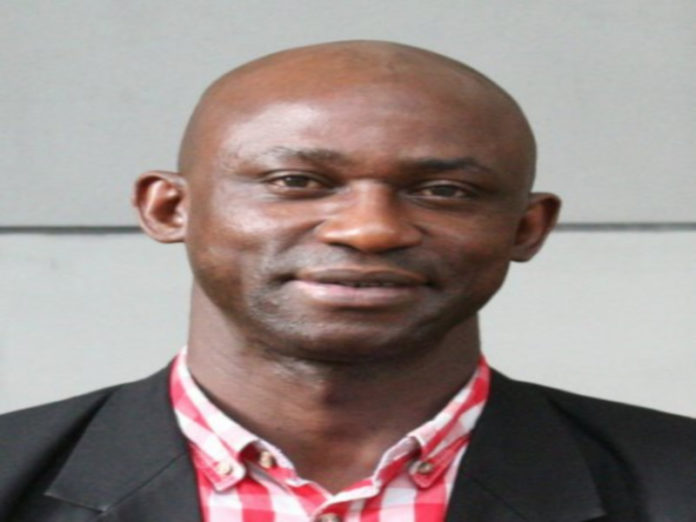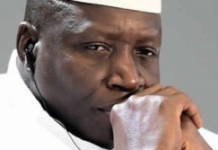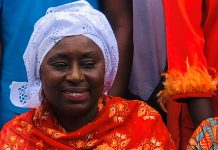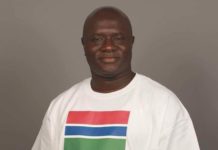By Yankuba Jallow
Ex-Lieutenant Binneh Minteh of the Gambia National Gendarmerie, on Thursday January 24th 2019, explained to Commissioners of the TRRC, what led to the 1994 coup d’état in the country, by members of the Gambia National Army.
The witness said the cause of the July 1994 coup cannot be traced, without critically looking into the presence of Nigerian soldiers in the Gambia National Army (GNA).
“The Nigerians planted the seed of the coup in the minds of junior officers in the Gambia National Army,” he said; that the presence of the Nigerian Army Training Team (NATAG) within the GNA, angered senior as well as junior GNA officers.
He added: ‘we should question ourselves whether the coup was not as a result of a conspiracy by the Nigerians.’
Minteh testified that members of the Gendarmerie were not happy with their amalgamation into the Gambia Police Force (GPF); adding that they felt they were reduced to becoming Police Officers from soldiers, and that most of the heavy weapons of the Gendarmerie, were transferred to the GNA.
“This reduced the morale in the Gendarmerie,” he said.
Minteh said the Gendarmerie has a dual function of both policing and military; pointing out that as a Gendarmerie, the military function includes combat skills and the police function includes law enforcement. He said when the Gendarmerie was amalgamated with the police, it was called the ‘Tactical Support Group’.
Minteh said on the 21st of July 1994, he was not deployed to the Airport to provide security to former President Jawara; adding that he was told the guard of honour was cancelled because there was rumour of a coup by soldiers.
“Yahya Jammeh was disarmed but before this, Jammeh refused to be disarmed. There was push and pull before Jammeh was finally disarmed at the Airport,” he said. He said the Nigerians made the biggest mistake by not arresting Jammeh and his co. coup plotters at the Airport and take them to Mile II. “This was a big mistake by the Nigerians and it contributed to the success of the coup. It was a lapse in their command,” he said.
On July 22nd 1994, he said there was an emergency alarm at the Fajara Barracks and all the soldiers assembled at the Guards Room. He said the soldiers were briefed about an ongoing coup by members of the GNA at the Yundum Barracks. “We were told about the coup and we were deployed to the Denton Bridge under the command of Captain Amadou Suwareh,” he said. He testified that they were given the order to stop the soldiers from crossing the Denton Bridge by all means, and if necessary, to shoot them. He said Suwareh was the one in charge of the soldiers stationed at the Denton Bridge.
Minteh told Commissioners they arrived at the Denton Bridge at around 9 am and that 30 minutes later, the coup makers arrived in their trucks. He said at this point, Captain Suwareh went to meet them. And that this took a long time.
“I decided to go with Lieutenant Lamin Jarjue to see what held our Commander (Suwareh). We saw him behind Yahya Jammeh and Edward Singhateh. In my view, I think he was seized or captured. He was not at liberty because he could not talk to us,” the witness said.
At this juncture, the witness said Edward Singhateh asked them to put down their guns and raise their hands, to which they complied. “Edward told us that they wanted to cross the Bridge and go to Banjul; that we cannot stop them because they were more armed than us and they can blow us with just a rocket propelled grenade (RPG),” he said.
He emphasized that Chongan, an ex-Assistant Inspector General of Police, was constant with his position that they should resist the soldiers from crossing the Bridge. “I used my discretion not to fire at the soldiers because it was suicidal. We concluded that firing at them was suicidal because we knew we cannot stop them,” he said. He testified that when Chongan left, he and his colleague (Lieutenant Jarjue), went to Police headquarters in Banjul, to talk to the Operations Commander (Chongan), to come and talk to the soldiers to find a solution; that they did not meet Chongan but met the Inspector General of Police, Pa Sallah Jagne, who ordered them to go and negotiate with the soldiers. He said IGP Jagne promised them that he would be coming. Minteh said when they left the Police headquarters, they saw the soldiers split into two groups around the Gambia High School; that one group used the Independence Drive and the other went through Marina Parade. “I saw Suwareh with the soldiers and was in a combat ready position,” he said. He stated that he left with Jarjue to the State House and encouraged Lang Tombong Tamba, who was the Guards Commander of the State House not to resist the soldiers.
“You mean both of you encouraged Lang Tombong Tamba not to resist the coup?” Lead Counsel of the TRRC, Essa M. Faal, asked Minteh.
“Yes. I was encouraging Lang Tombong for us to find a peaceful solution but it is not necessarily to surrender the State House. We do not want blood to be shed,” he said. “And my advice to Tamba was not to resist because there was no way they can put up any kind of resistance, and it could turn fatal and bloody because we would not be able to contain the situation,” he added. He said the State House gate was opened and Jammeh as well as his group entered without any form of resistance. He said he recalled Jammeh and the soldiers were dancing “Bukarabu”and chanting songs.
At this time, he said there were many Lieutenants at the State House, few senior military officers as well as Police Chiefs. He said the junta held a meeting at the State House and it was made clear that it was a coup and officers were assigned with responsibilities.
“Edward told us in the meeting that it was the junior officers who did the coup but Jammeh who was the most senior, will be the chairperson. He told us that himself (Edward), Yahya Jammeh, Sanna Sabally and Sadibou Hydara, were the Executive and he made it clear that senior officers were subjected to their command,” Minteh explained.
He said he was given the responsibility of Fajara Barracks together with Lang Tombong Tamba; noting he only attended one meeting at the State House.
Minteh told the Commission that he holds a doctorate degree in global and international affairs; that he graduated from Armitage High School in 1984, and joined the Gendarmerie that same year as intake 5. He noted that in 1988, he was conferred the rank of officer cadet and made an instructor of the Gambia Gendarmerie Training School in Fajara. He said in 1988, he went for basic officers training in Turkey, and was given the rank of 2ndLieutenant upon his return until the 1994 coup. He testified that the GNA was established in the aftermath of the 1981 coup.
Sittings Continue today at 10 am.




















